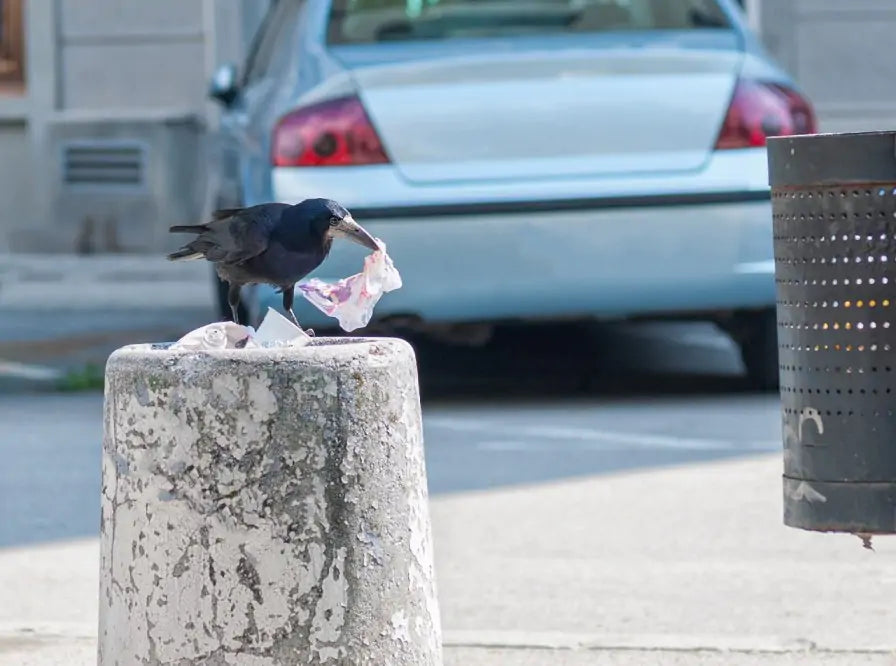OR
Express Checkout

Is It a Bird, Is It a Plane? Well, It’s a Crow Picking Up Litter
Visitor to a theme park in Western France have a new spectacle to enjoy. Six crows have been trained to pick up litter around the park. The birds were chosen for the job because they are known for their intelligence, and in return for collecting litter and putting it in a wooden box, the birds get a tasty morsel of food as a reward. Even in the bird world, some don’t play by the rules though, and some crows have been spotted trying to steal the rubbish collected by other birds to get the reward. The managers of the park say the experiment is designed to make visitors more aware about litter and change their attitudes about crows in the process.
How litter can harm wildlife
The crows aren’t just doing us a favour by picking up litter, they’re saving their fellow animals from harm too. Everyday items we throw away can harm or even kill wildlife. Here’s how to prevent this from happening.
Plastic rings: Cans are often strung together by plastic rings. Smaller animals can easily get trapped in these. Make sure you cut all of the sections of the rings apart before you dispose of them.
Fishing line and hooks: Birds can get their beaks and wings trapped in discarded fishing lines, and hooks can be swallowed or get stuck in their skin or beaks. If you spot fishing litter, pick it up and discard it.
Drinks cans: Tiny animals looking for food or shade can become trapped in cans, and sharp edges can seriously injure animals too. Always dispose of cans responsibly. Rinse them and crush them before putting them in the recycling bin.
Chewing gum: Animals can step in gum and it can stick in their fur or feathers and this might stop them from moving properly. Wrap gum in paper and dispose of it properly. Many rubbish bins now have a small chewing gum disposal unit on top.
Tin cans, cups, and jars: Animals can get stuck in them if they are searching for food. Always rinse containers out and put lids back on them. Always crush metal cans before you dispose of them.
Plastic bottles and bags: Marine life like whales, turtles, and seabirds often mistake plastic for food, and if they’re eaten, they can choke them or cause fatal bowel obstructions. Opt for paper bags or use reusable bags whenever you can.